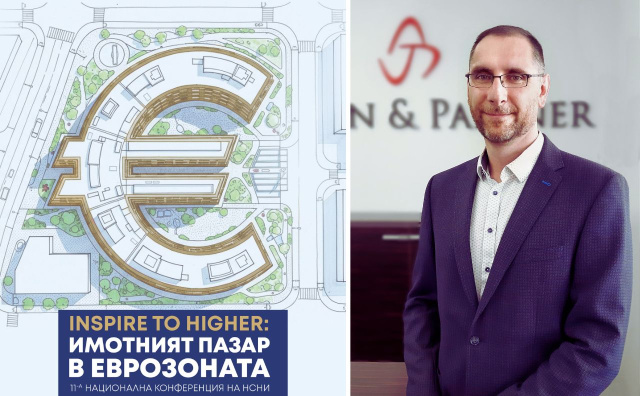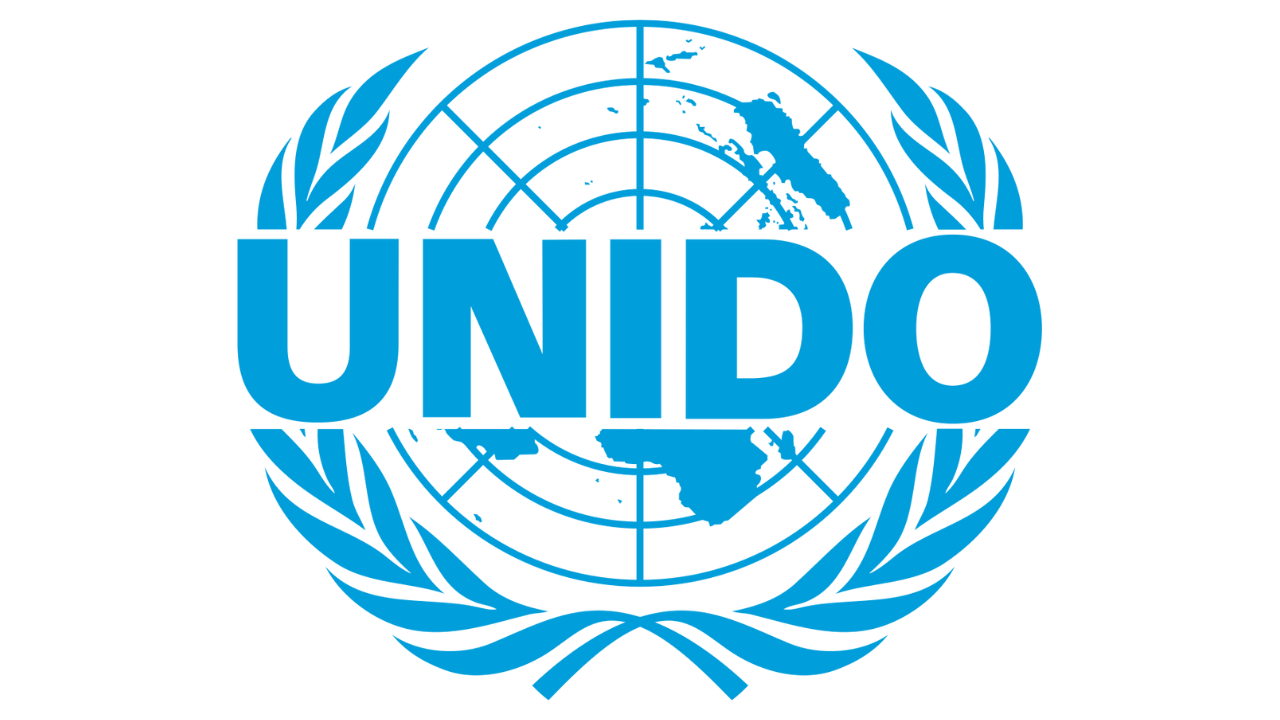Copyright novinite

What really happens to real estate when the euro arrives? Martin Lazik, chief analyst at the National Association of Real Estate Agencies in Slovakia, will talk about Slovakia's experience – what works, what mistakes to avoid, and where the opportunities lie. With proper regulation and coordination, Bulgaria can turn the eurozone into an accelerator for innovation and sustainable growth, rather than a cause for concern. Martin Lazík is a respected real estate analyst with over twenty years of experience in the Slovak market. Since 2001, his career has been closely connected with the National Association of Real Estate Agencies of Slovakia (NARKS), where he has held key roles, including CEO of Reality.sk, Secretary-General, and now Chief Analyst. As a respected expert in the field, he is an active conference speaker, university lecturer, and media commentator. He is also a partner at Urban & Partner, overseeing real estate development projects and property acquisition analyses. This October 31, he will join the XI National Conference “Inspire to Higher 2025: The Real Estate Market in the Eurozone” organized by the National Real Estate Association, where he will share his in-depth insights on the impact of the Eurozone on real estate markets in Central and Eastern Europe. Mr. Lazík, Slovakia joined the Eurozone in 2009. From your experience, how did this transition affect property prices and market behavior in the years immediately before and after the change? Slovakia’s entry into the Eurozone marked the finalization of its integration into the structures of the European Union and the broader framework of strong European economies. The decision to adopt the euro provided a powerful stimulus to the still-transforming Slovak economy. For the real estate sector, Eurozone accession represented both a challenge and an opportunity. Approximately two years before the currency changeover, individual foreign buyers – often operating in organized groups – began entering the Slovak property market. Their focus was primarily on the most attractive locations in the capital city, particularly new residential developments. These investors came from countries that already used the euro and were confident in Slovakia’s successful integration. The Slovak property market appealed to them because it had experienced robust growth in 2006 and continued expanding in 2007. The national economy was performing well, and from an international perspective, Slovak real estate appeared relatively affordable. This trend was reinforced by strong domestic demand, supported by economic growth and by households’ efforts to convert savings held outside the banking sector into euros. At the same time, between 2007 and 2008, Bratislava saw an unprecedented wave of approved new residential and commercial construction. However, a significant portion of these projects were never completed after the market cooled, and many were frozen for more than a decade. Numerous inexperienced developers ultimately went bankrupt. Many Bulgarians worry that euro adoption could trigger a real estate price surge. Based on Slovakia’s experience, do you think such concerns are justified, or are they largely driven by speculation? Whether this concern is justified depends on the specific dynamics of the Bulgarian market. Property prices tend not to rise solely in the months immediately preceding euro adoption—they typically increase for several months or even years in advance. The key question is not whether prices will rise, but by how much, and whether that growth is based on solid economic fundamentals or speculative behavior. In periods of rapid appreciation, it is usually a combination of both factors. The months following the euro’s introduction typically reveal the extent of the market’s adjustment and correction. In the Slovak market, how did the introduction of the euro impact foreign investment and property development? Should Bulgaria expect a similar wave of interest from international investors? It is important to view Slovakia’s euro adoption within the broader global context. The transition occurred during the worldwide financial and real estate boom of 2007–2008, when investor sentiment was highly optimistic. This was immediately followed by the financial and property downturn triggered by the global financial crisis of 2008–2009, following the collapse of U.S. banks in September 2008. After the exceptionally active market years of 2007 and especially 2008, a slowdown was anticipated. However, the decline proved significantly sharper, mainly due to the global financial crisis and the increasing caution of banks in financing real estate projects. From an analytical point of view, what early indicators should Bulgarian policymakers and market observers monitor to prevent speculative bubbles in the housing sector after the euro is introduced? The foundation of market oversight lies in reliable data. If trustworthy and detailed real estate data are continuously collected, they can be effectively analyzed and used to identify early warning signs. The key is both the continuity and quality of the data. In Slovakia, the National Bank of Slovakia maintains a composite real estate index, tracking indicators such as the price-to-rent ratio and the price-to-income ratio. In addition to monitoring average nominal and real housing prices, the index compiles time series of rental prices and disposable household incomes to calculate comparative ratios (price/income, price/rent) and their modeled residuals. Additional indicators include residential construction activity, overall economic performance, and mortgage interest rates. Based on this composite index, it was evident that by the end of 2008, the Slovak property market had reached levels consistent with the definition of a real estate bubble. In Central and Eastern Europe, how have Eurozone countries balanced the need for affordable housing with rising demand from investors and developers? Developers and investors are typically the quickest to respond to housing and commercial property demand. By bringing new projects to market, they foster competition and help stabilize supply. Without active development, housing needs would have to be met solely through the existing stock, leading to rising prices for older properties and limited improvements in quality. Thus, real estate development forms a crucial part of ensuring affordable housing and maintaining a healthy, balanced property market. Slovakia’s real estate market has matured significantly since joining the Eurozone. What lessons can Bulgaria draw from Slovakia’s path regarding regulation, transparency, and market stability? In my point of view, the benefits of Eurozone membership are considerable. The euro provides greater stability to the business environment, particularly during periods of domestic political or economic turbulence. The linkage of the banking and mortgage systems to the European Central Bank is a major advantage. At the peak of the mortgage cycle, Slovakia’s housing loan rates were around 1%, which contributed to moderate overheating in 2022. Nevertheless, the years immediately following euro adoption (2010–2015) were characterized by stability in both property prices and overall market conditions, also reflecting the recovery from the global financial crisis. You’ve worked closely with both the public and private sectors. In your opinion, what kind of coordination is needed between government, banks, and real estate professionals to ensure a smooth transition for Bulgaria’s property market? Although I am not familiar with the legislative background of the Bulgarian property market, several principles are universally important. The permitting process for new developments should be transparent and efficient, the banking sector should remain competitive, and real estate agency activities must be professional and subject to oversight with strong position of association. From a market monitoring perspective, it is vital to collect relevant and accurate data. Equally essential are legal security for all market participants and effective enforcement of property laws. How has Slovakia managed citizens’ expectations during periods of rapid price growth, and what communication strategies could Bulgaria adopt to ease public concern about housing affordability? When governments seek to improve housing affordability, they can employ a range of policy tools. In Slovakia, for example, mortgage subsidies for young people with lower incomes were introduced. The state can also pursue direct housing initiatives, such as building rental or affordable-for-sale housing. Another potential measure could involve reducing or waiving VAT for first-time buyers of new developments, where value-added tax is normally included in the purchase price. Looking at the wider Central European region, which Eurozone member’s experience, besides Slovakia’s, offers the most relevant model for Bulgaria to study and possibly emulate? In my opinion, Croatia’s experience is particularly relevant for Bulgaria. It represents the most recent example of euro adoption and, like Bulgaria, is a post-communist country with comparable economic and institutional conditions. Finally, in your view, could Bulgaria’s entry into the Eurozone actually create new opportunities for stabilization and innovation in the property market, rather than simply raising prices? Every structural change brings both risks and opportunities. After joining the Eurozone, the Slovak real estate market became more stable, competition among real estate agencies, developers, and banks intensified, and this, in turn, led to greater innovation and self-regulation in pricing. The market environment became more transparent and better regulated, although not all of these improvements were directly linked to euro adoption itself. Chief analyst at the National Association of Real Estate Agencies in Slovakia (NARKS) and partner at the consulting company Urban & Partner. Martin Lazík is a respected real estate analyst with over twenty years of experience in the Slovak market. Since 2001, his professional career has been closely linked with the National Association of Real Estate Agencies of Slovakia (NARKS), where he has held several key positions—from CEO of the real estate portal Reality.sk and Secretary-General to his current role as Chief Analyst. As a respected expert, he is a sought-after speaker at conferences, is actively involved in university-level education, trains future real estate agents, and regularly provides expert commentary and analysis for the media. In addition to his analytical work, he is also a partner at Urban & Partner, a company focusing on real estate services and development. In this role, he is responsible for the project management of development projects and the preparation of property



